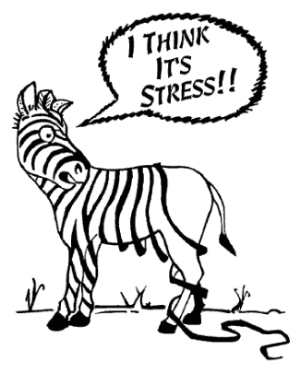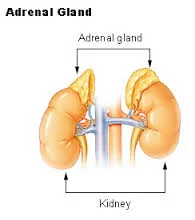As the concept of mindfulness becomes more recognized, anxiety and high stress seem to be more prevalent. Perhaps we are finally taking note of how our body feels and recognizing that there needs to be a shift, or perhaps we just keep piling on responsibilities.
There is an optimal level of stress, we would not get anything done if we had nothing to drive us (see graph below). However, it is easy to teeter over the edge!
Finding ways to manage your anxiety so we are not always "on alert", is vital to our health. I have mentioned before that this is something I have struggled with over the years. I have never suffered from lack of sleep due to stress, unless it is the night before a big event, but my stomach and skin suffers and I notice it quickly. Everyone will have their own way anxiety and stress represents itself in their body and recognizing these signs is helpful. It is well documented that anxiety and high stress have many negative implications on our health.
- Does your mind race at night, preventing you from getting to sleep?
- Do you find it hard to concentrate at work?
- Do you find you are overly emotional before your period, or in general?
- Do you get palpitations or a racing heart?
- Do you feel bloated often?
- Is your skin breaking out in hives often?
- …just to name a few.
Tried and Tested Tools:
Over the years, there have been several natural “go-to’s” to manage my stress and anxiety and I wanted to share a few more with you:
- Yoga: What I love about yoga is that it is for all levels and all body types. There are days I want to push myself and work up a sweat or try a new pose, and days I could sit in child’s pose or legs up the wall the whole time. Both are very nourishing at the right time. The movement is in tune with your breath, connecting mind to body. If you are beginner or would like something slower and nourishing check out www.yogawithadriene.com. If you are in Halifax, check out Shanti Hot Yoga, Rio or Breathing Space - to name a few. If you want a little more fire at home check out www.oneoeight.tv.
- Meditation: Start with playing your favourite song, like this one, sit comfortably on the floor and breath deeply, into your chest and belly, until it is over. It can be that simple! Or take 20 minutes a day to try Deepak Chopra’s 21 day mediation challenge - starting Monday.
- Rescue remedy: I love having this in my purse at all times for those acute stressors. Bach flowers are an amazing gentle form of medicine and this is a blend of a few. You can find it in any health food store, or the health food section of the grocery store.
- Time with friends and family: My friends and family are very important to me. Not only do they make me feel good in the moment, I will live longer because of them! There is a great study showing that social support is a better predictor of lifespan that BMI, pollution and even smoking. My weekends are typically filled with time with my loved ones, decreasing my cortisol levels and increasing oxytocin.
- Avoiding stimulants: Unless I am on a very relaxing vacation, I cannot drink coffee or any caffeine. I am a slow metabolizer of coffee, therefore a small amount makes me jittery and spikes my anxiety. I suggest taking a caffeine break for at least 2 weeks, to understand how your body reacts to it. Other options are chamomile or peppermint tea, or just plain water.
- Mind mapping: I have started about 3 journals, all with 1-3 entries in it. It is not my thing. However, when I am feeling overwhelmed, making a mind-map or vision board of my ideas helps to organize my thoughts and create a plan.
- To do lists: Lists are key to a stress free week. I was introduce to Toodledo by a friend and colleague and it has made life so much easier. I can make due dates, organize by importance, and I don’t have to re-write things over and over. Do you have a favourite To Do app?
- Acupuncture: Is the tip of your tongue red? Do you have red dots over your tongue? These are clues that your body is “on alert.” Acupuncture addresses this pattern with powerful points like Yin tang or Ht 7. Consistency is key with acupuncture.
I do take, and suggest, supplements when needed, and that is where a Naturopathic Doctor can help. Sometimes a little extra support is necessary, especially during times of acute anxiety. I also have mentioned before that anxiety could be due to a hidden cause and an ND can help decipher what that might be.
What are your favourite anxiety busters? Let me know in the comments below 😃
In health & happiness,
Dr. Karen









